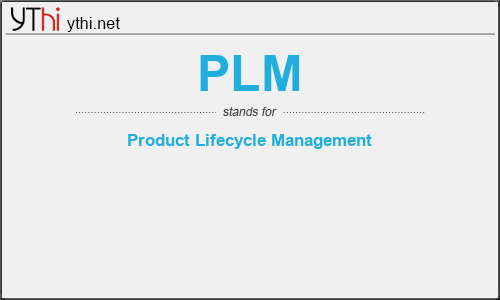What does PLM mean? What is the full form of PLM?
The Full Form of PLM is Product Lifecycle Management.
Product lifecycle management (PLM) refers to the handling of a good as it moves through the typical stages of its product life: development and introduction, growth, maturity/stability, and decline. This handling involves both the manufacturing of the good and the marketing of it. The concept of product life cycle helps inform business decision-making, from pricing and promotion to expansion or cost-cutting.
Understanding Product Lifecycle Management (PLM)
Effective product life cycle management brings together the many companies, departments, and employees involved with the product’s production to streamline their activities, with the ultimate goal of producing a product that outperforms its competitors, is highly profitable, and lasts as long at consumer desire and technology permit. It goes well beyond just setting up a bill of materials.
PLM systems help organizations cope with increasing complexity and engineering challenges of developing new products. They can be considered one of the four cornerstones of a manufacturing corporation’s information technology structure, the others being the management of communications with their clients (customer relationship management or CRM), their dealings with suppliers (supply chain management or SCM), and their resources within the enterprise (enterprise resource planning or ERP).
PLM
means
Product Lifecycle Management![]()
Translate Product Lifecycle Management to other language.


Leave a Reply
You must be logged in to post a comment.